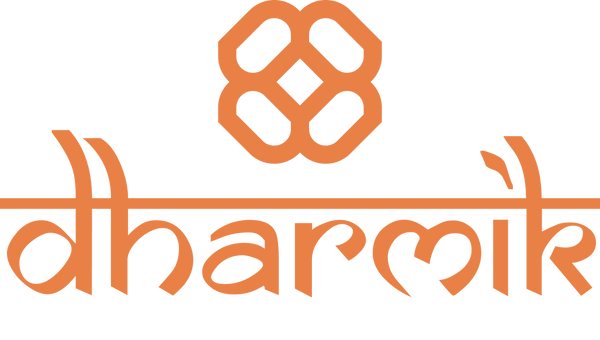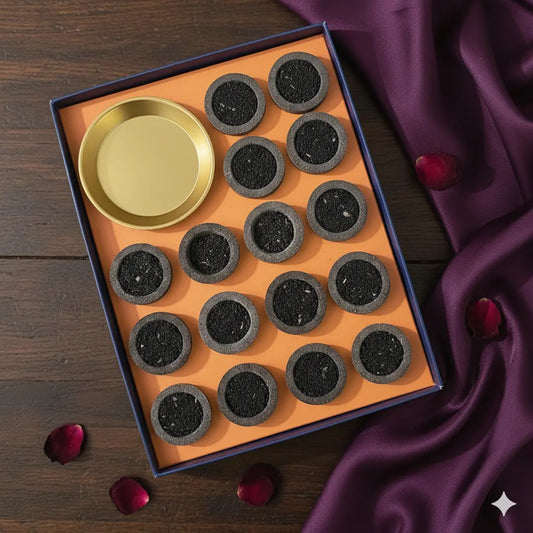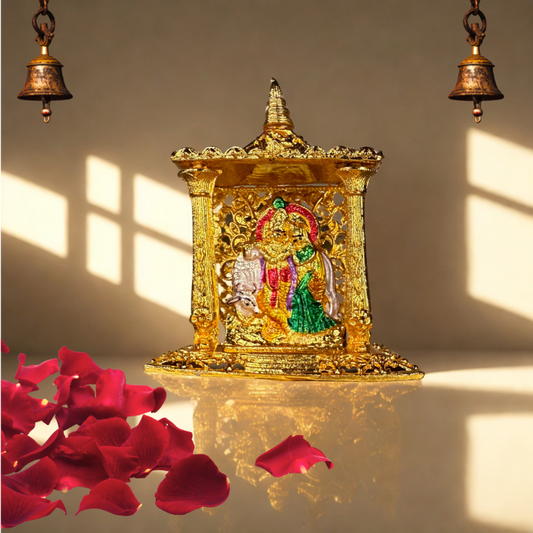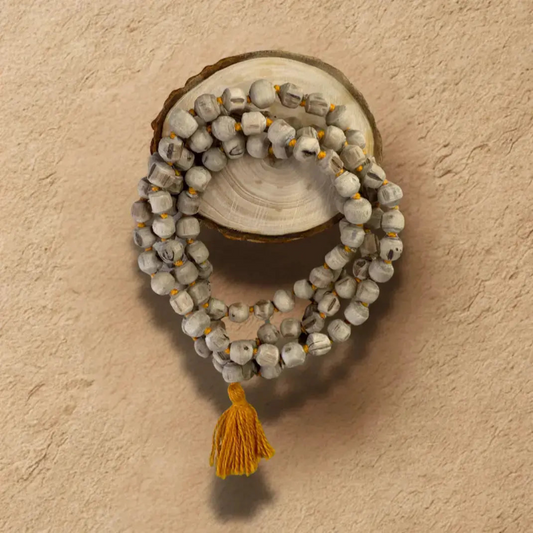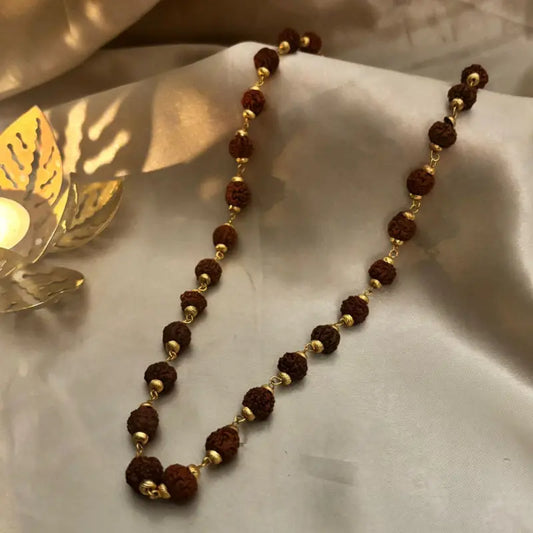
Bhai Dooj Traditions Across India: From Uttar Pradesh to Gujarat
Share
Bhai Dooj, also known as Bhau Beej, Bhai Phonta, or Yama Dwitiya, is one of the most cherished festivals that celebrates the beautiful bond between brothers and sisters. Falling on the second day after Diwali, this sacred occasion is filled with love, rituals, and family togetherness. While the essence of Bhai Dooj remains the same across India, the sister praying for her brother’s long life and prosperity, the customs, stories, and celebrations vary beautifully from one region to another.
At Dharmik, we believe that every festival is a moment to reconnect with our roots, traditions, and spiritual essence. Through our thoughtfully crafted products from Amrit Jal and Perfumes to the Vrindavan Prasad Box, Hawan Cups, and Mandir Essentials, we aim to bring the purity and devotion of Indian festivals into your home, keeping every ritual as divine as it was meant to be.

The Sacred Legend: Yama and Yamuna
According to ancient Hindu scriptures, the story behind Bhai Dooj originates from the divine bond of Lord Yama, the God of Death, and his sister Goddess Yamuna. Legend says that on the Dwitiya Tithi of Shukla Paksha in the month of Kartik, Yama visited Yamuna after a long time. She welcomed him warmly, applied a tilak on his forehead, and performed aarti with love and devotion. Touched by her affection, Yama blessed her and declared that any brother who receives a tilak from his sister on this day shall be blessed with long life and prosperity.
Even today, this legend forms the heart of the Bhai Dooj ritual, a moment where affection and blessings merge with divine energy. Many devotees sprinkle a few drops of amrit jal during the aarti, symbolising purity and sanctity just as Yamuna did for her divine brother.
Bhai Dooj in Uttar Pradesh and Bihar: Rooted in Rituals
In Uttar Pradesh and Bihar, Bhai Dooj is celebrated with deep devotion. Sisters prepare aarti thalis decorated with roli, rice, diya, and sweets. The brother, after receiving the tilak, offers gifts and sweets in return.
To make this ritual even more sacred, families often use Dharmik’s Mandir Essentials, ensuring that every element from the diya to the incense adds authenticity to the puja. The soft aroma from Dharmik Amrit Jal Perfume and the spiritual fragrance from Hawan Cups create a serene environment, making the ceremony more heartfelt and meditative.
Bhai Phonta in West Bengal: A Ritual of Reverence
In West Bengal, the festival is known as Bhai Phonta. Sisters fast until they apply phonta (a special mark) on their brothers’ foreheads, chanting mantras for their protection. The rituals are performed with strict purity and devotion. A sacred mixture of sandalwood, ghee, and amrit jal is often used to mark the forehead, a practice that aligns perfectly with the values Dharmik stands for.
The celebrations conclude with a grand feast of sweets, luchi, cholar dal, and special mithai symbolising love and abundance. For devotees who wish to complete their Bhai Phonta puja in a spiritually authentic way, the Vrindavan Prasad Box from Dharmik brings temple-blessed offerings right to your home, connecting you to the divine essence of Vrindavan itself.

Bhai Beej in Maharashtra and Gujarat: The Festival of Gratitude
In Maharashtra and Gujarat, Bhai Dooj is lovingly called Bhai Beej. Sisters invite their brothers for a hearty meal, perform the aarti, and apply a tilak while praying for their well-being. Brothers, in return, shower their sisters with gifts and blessings.
Here, the significance of purity and sacredness shines through. Lighting Dharmik Hawan Cups during the puja not only purifies the environment but also enhances the spiritual vibrations of the home. The soothing aroma uplifts the energy, reminding everyone that these rituals are not mere customs but expressions of gratitude and divine connection.
To add a finishing touch, the Dharmik Perfumes can be used to scent the festive space. Delicate yet divine, it represents the fragrance of devotion that lingers long after the rituals end.
Beyond Rituals: The Spirit of Bhai Dooj
What makes Bhai Dooj truly special is the emotional warmth that transcends customs. Whether it’s the Yamuna inviting Yama, a sister in Bengal chanting protective mantras, or a sister in Gujarat preparing a festive meal, the message is universal: love, protection, and eternal bonding.
Dharmik embodies this very spirit, blending tradition with purity. From lighting a diya with our Mandir Essentials, to sprinkling Amrit Jal during prayers, to sharing Prasad from Vrindavan, each act becomes a sacred offering, turning your home into a temple of devotion and gratitude.

FAQs on Bhai Dooj
-
When is Tulsi Vivah 2025 (date and muhurat)?
In 2025, Tulsi Vivah will be observed on 2 November (Kartik Shukla Dwadashi) Dwadashi begins at 7:31 AM on Nov 2 and ends at 5:07 AM on Nov 3. -
What is the significance or meaning of Tulsi Vivah?
Tulsi Vivah symbolizes the sacred union of Goddess Tulsi with Lord Vishnu (or his Shaligram form). It marks the beginning of the auspicious wedding season in Hindu culture and represents purity, devotion, and prosperity. -
How do you perform Tulsi Vivah (puja vidhi / rituals at home)?
At home, devotees decorate the Tulsi plant as a bride, place a Vishnu or Shaligram image beside it, offer flowers, turmeric, kumkum, tie a sacred thread, chant mantras, do aarti and distribute prasad. -
Can the Tulsi Vivah be done without a priest / by anyone at home?
Yes. Many sources mention that the Tulsi Vivah ritual can be done by household members (especially women) at home, without needing a priest, with sincerity and devotion. -
What offerings are made to Tulsi and Vishnu during Tulsi Vivah?
Offerings often include flowers, fruits, sweets, Panchamrit (milk, honey, ghee), water, kumkum, turmeric, incense, a diya, and Tulsi leaves. -
Is Tulsi Vivah connected to Dev Uthani Ekadashi or auspicious timing of the year?
Yes. Tulsi Vivah is associated with the awakening of Lord Vishnu after his four-month cosmic sleep (Yog Nidra). It often follows Dev Uthani Ekadashi (Prabodhini Ekadashi) and is considered an auspicious time for rituals and weddings.
Bhai Dooj is not just a festival; it’s an emotion that celebrates the sacred connection between siblings. Every tilak, every aarti, and every shared smile reflects the unbreakable thread of love and protection that binds brothers and sisters together. As families across India perform these age-old rituals in their unique ways, the essence remains the same devotion, purity, and affection. With Dharmik, you can embrace these traditions in their truest spirit. Whether it’s lighting Hawan Cups, sprinkling Amrit Jal Perfume, or offering Prasad with the Vrindavan Prasad Box, every ritual becomes a soulful act of love and gratitude.
This Bhai Dooj, celebrate not just with customs, but with consciousness and let Dharmik help you create a sacred space where devotion feels as natural as love itself.
Shop your Bhai Dooj essentials here:

